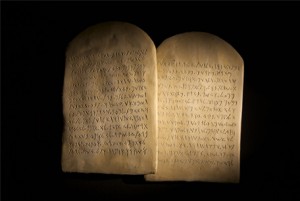More than a conqueror. That’s what you are in Him—even on those (sometimes wobbly) tightropes and challenging precipices of your walk with Him.
© desireofmysoul.faith & SoulBreaths.com. All rights reserved.
READING TIME: 5 MINUTES.
Note: This post—about the Modah Ani prayer, Hebrew audio, and deeper-dive explanation—is my response to a request from a Ladies Bible group to share the prayer and how I use it.
The sun rises. The sun sets. And with God’s immense grace, it begins all over again.
When you awake, He lovingly and faithfully returns your soul to you—a resurrection of sorts, coming forth from the slumber of night. Each morning’s breath a gift from Him, a reminder of His presence and kingship. A reminder that no matter how precarious that faith-walk tightrope might seem, God’s hand is holding you. He’s got this.
There are three revealing Hebrew words used interchangeably in the Bible for soul. One of them is neshama [neh-shah-mah], God’s breath of life.
Just as God breathed His divine breath into Adam (nishmat chayim [נִשְׁמַת חַיִּים], Genesis 2:7) to spark and animate the body’s and soul’s dimensions . . . so He has done with you. His holy breath flows through you. How glorious is that?
Think of it: God’s initial breath gave you life.
Jesus’s last breath redeemed your life.
This 17th century Modeh/Modah Ani prayer—serving as a template, a launching pad for a personal deep-dive with God every morning—helps us remember who He is and what we are, putting things in their rightful perspective from the start.
In fact, it’s usually said before even getting out of bed—but you can say it anytime during the morning.
We say it because . . . . .
Thus says the Lord, the King of Israel
and His Redeemer, the Lord of hosts:
I am the first and I am the last;
besides me there is no God.
—Isaiah 44:6
I am the Lord, and there is no other,
besides me there is no God;
I equip you, though you don’t know me,
that people may know, from the rising of the sun
and from the west, that there is none besides me.
—Isaiah 45: 5-6 (verses 6-7 in Tanakh/Hebrew Bible).
That’s why when we draw our first breath upon awakening, we can’t help but be . . .
Grateful.
H
u
m
b
l
e
d.
Surrendered to His will and ways, not ours.
Acknowledging that nothing is above or beyond or equal to Him. We admit we’re created to praise, glorify, and serve Him in our thoughts, words, actions.
So let’s get started by . . .
1. making a quick stop in the Hebrew and English
2. then traveling below the surface a bit to flesh out the deeper meaning tucked within the Hebrew to use those reflections as a template, personalizing it every morning as you greet your King
PIT STOP: THE HEBREW & ENGLISH
One quick note: the first two words, the title of the prayer, are Modeh ani (word usage for men) and Modah ani (word usage for women).
Modeh/Modah Ani
מוֹדֶה אֲנִי לְפָנֶיךָ מלך חַי וְקַיָּם שֶהֶחֱזַרְתָּ בִּי נִשְׁמָתִי בְחֶמְלָה,
רַבָּה אֱמוּנָתֶךָ
English Translation
I am thankful (I give thanks) before You, living, enduring, sustaining, eternal King [King of life, King who sustains us]. You’ve returned my soul within me with compassion. Great is your faithfulness.
Getting ready for the prayer trek
Note: the kh and ch are guttural, like a hard “k” sound stuck in the back of your throat. The audio (done in Hebrew for a female) is at the end of this post.
Rote prayer isn’t your target. You can move beyond the prayer’s words to a more soul-stirring perspective—one that helps you get still and tap into that special place.
I’m talking about His secret place. A protective crevice in Him, our Rock, where the powerful waterfall from His throne rains down on your soul and blesses you with revelation, refreshment, new mercies, and a word from Him, the Creator and Lover of your soul.
How my Modah Ani prayer time flows: I say Modah Ani in phrases (as given in the next section), pausing in between each phrase to reflect on what it means to me that morning. I also weave in prayer requests at one juncture (just before the final phrase).
REFLECTING ON HIM: ENGLISH/HEBREW PHRASING
The template below—broken into phrases with deeper reflections after each phrase—gives an example of how you can personalize Modeh/Modah Ani every morning.
Let the Holy Spirit lead you as you consider what’s in your soul at that moment when you think of Him, when you think of you standing before Him, when you think about His immense faithfulness and majesty.
Transliteration: Modeh/Modah ani:
English: I am thankful (I give thanks)
Deeper reflection: I am awake, my eyes open, and my soul acknowledges and is aware that there is something greater than me—You, God, Ruler of the universe.
***
Transliteration: l’fanekha:
English: before you
Deeper reflection: I—my innermost self, my soul—is here, before you, shadowed and overcome by your greatness, too marvelous for me to comprehend, too deep for me to fathom. I am stilled by your Name, your character, your might.
In this moment, I realize that there’s no need for debate. You are the Glorious King. Period. You who created me.
I’m grateful for who you are and what you’ve done for me. I surrender before your Lordship. I am yours.
Writing that prompted me to share lyrics from a worship song sung in the mid-80s about God’s Holy Spirit, a consuming fire, reminding us to approach Him in humility, in awe:
Consume me, consume me with your fire, Lord.
Consume me, consume with your fire.
Consume me, consume with your fire, Lord,
that I might know the power of your love.
***
Transliteration: melekh chai v’kayam:
English: King, living and eternal (sustaining/enduring)
Deeper reflection: You are here with me in this physical world . . . yet you are on your throne, high and lifted up, holy and just, righteous and merciful, eternal without a beginning or an end. You are too marvelous for me.
You are the unseen God that my soul sees and knows. You are the promised author and perfecter of my faith. In You—through our messiah, Yeshua (Jesus)—is life, sustaining, full, complete, good.
Your Word is everlasting, relentlessly faithful, forever true—and it lives within my soul, correcting me, leading me, teaching me, refining me, reminding me, hemming me in. Day in, day out. With every soul-breath inhaled, with every soul-breath exhaled. You are there.
***
Transliteration: shehekhezarta bi (bee):
English: you’ve returned within me (restored)
Transliteration: nishmati
English: my soul (breath of life)
Transliteration: b’chemla:
English: with compassion (mercifully, graciously)
Deeper reflection: You have graced me with another morning. A day to serve you, to speak of your greatness and character, to speak your Name, to share the Good News of salvation through our Messiah, to do whatever you ask me to do this day. Your breath flows through me . . . I am yours.
But you didn’t return my soul because of obligation or randomly, without thought. You returned it with intentionality, a purpose . . . and you did it personally—from You to me. Not merely in one fell swoop, generically to the masses. Your love, mercy, grace, compassion rose up from your throne and blessed me with another breath to walk with you on earth and serve you.
You alone know the number of days you’ve given to me . . . So please teach me to number my days that I may have a heart of wisdom (Psalm 90:12). Your kindness and love overwhelm me. Thank you, my Lord, my King, my God.
***
Intercession: If I feel led—and most of the time I do—this is where I begin intercession for critical needs that day for others . . . then I thank Him because I can go nowhere else for help . . . it’s His tried-and-true faithfulness that I’m counting on.
***
Transliteration: raba emunatekha:
English: abundant/great is your faithfulness
Deeper reflection: Who is like you? Faithful and true, King of Kings, Lord of Lords (Revelation 19:11-16). What am I that you’re mindful of me (Psalm 8:1-4) . . . how vast is your faithfulness, how deep is your love, what breadth, what height (Ephesians 3:14-19), and how mighty are your ways.
Guide me today, let me hear your voice in my soul, and please help me to do your will, lifting up your name wherever you send me, becoming a carrier of your presence, conquering by the words of my testimony . . . telling of your goodness, grace, salvation, and faithfulness.
***
Blessings on you, dear reader, precious one in the Lord. May He cover you in the shelter of His wings as you go deeper to seek His face and serve your King.
AUDIO EXCERPT
Here’s how the Modeh/Modah Ani prayer sounds in Hebrew (female wording)—it’s slowly voiced with deliberateness to hear the syllables.
PHOTO CREDIT
Backpacked girl facing mountainous region by Jason Blackeye on Unsplash.com
Wrecking ball basic photo by alphaspirit with my text added on—purchased 2021 from iStock.com (ID:1204137944).
Morning, man praying photo by Aaron Burden on Unsplash.com
Women, calm, reflective photo by Artem Kovalev on Unsplash.com
NOTE: Rabbi Tzvi Freeman’s commentary on Modeh Ani (chabad.org) further sparked my morning Modah Ani reflections.











